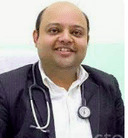Antibiotics - What Should You Know?
Antibiotics have been the bed rock of modern medicine. Modern medicine (cancer chemotherapy, placement of implants, joint replacement, transplant) have been based on the premise that infections could be treated. But today these magic bullets are beaten by bacteria & we are facing antibiotic resistance as a global threat. To save them, we must use antibiotics only when needed, also use a narrower spectrum possible & for the right dose and duration. Most Upper respiratory tract infections or diarrhoea may be viral and may not require antibiotics.
Antibiotics, earlier referred as wonder drugs, are derived from bacterium and are used to cure bacterial infections. These antibiotics cannot be used to cure viral infections. Therefore, they must be used only when prescribed by any physician. Ever since its inception, antibiotics have gained importance in medicinal field. Other than curing bacterial infection, they have also been widely used in preventing an infection.
Below is the list of some commonly used antibiotics along with their usage-
- PENICILLINS- It is one of the earliest antibiotics to be discovered. Penicillin finds its use in curing ear infections, dental infections, skin infections, gonorrhea and urinary tract infections. If combined with beta-lactamase inhibitors, penicillin gets shielded by the attack of other damaging bacterium enzymes.
- AMINOGLYCOSIDES- This antibiotic is majorly used in treating pneumonia, typhus etc. This particular antibiotic comes with its own array of side-effects like damage to kidneys and ears. Therefore, it must be injected only if prescribed.
- SULFONAMIDES- These sulfa drugs are pivotal in curing kidney infections. They too have side effects. Excessive intake of sulfa drugs can hamper the functioning of your kidneys.
- FLUOROQUINOLONES- This antibiotic is used in treating urinal tract infections, skin infections and several kind of respiratory diseases like bronchitis, sinusitis and pneumonia. Owing to its side effects, this drug must not be given to children and pregnant ladies. Higher dosage may lead to a severe kind of nerve impairment, known as peripheral neuropathy. Additionally, they may also hinder bone growth.
- CEPHALOSPORINS- Alongside its usage in surgical prophylaxis, Cephalosporin can also be used in curing bronchitis, pneumonia, step throat, otitis, tonsillitis, gonorrhea etc.
- MACROLIDES- Macrolides serve as an alternative drug to penicillin. It can be used to treat all sort of respiratory infections, genital infections and gastrointestinal infections. Excessive intake of macrolides can cause gastrointestinal problems.
- TETRACYCLINES- Tetracyclines can be a remedy for malarial infections, syphilis and chlamydial infections. Additionally, they are also used for curing Rocky Mountain spotted fever, respiratory tract infections, Lyme disease, urinary tract infections, typhus and sexually transmitted disease. Due to its side-effects, they must not be consumed by children and pregnant ladies.
ANTIBIOTICS USED FOR ANTIBIOTIC PROPHYLAXIS-
As mentioned earlier, antibiotics can also be used for preventing any infection while undergoing any kind of surgery. Antibiotic Prophylaxis is usually used when the patient is going to have breast surgery or joint replacement surgery or pacemaker surgery or cataract surgery or glaucoma surgery. Such medical procedures make the patient body highly prone to infections. Therefore, antibiotics are used to safeguard the patient's organs.
Note that Antibiotics should not be used for common cold as most are viral Dengue & Chikungunya. Also, unnecessary antibiotics result in side effects like drug rash, diarrhoea & other problems.
The abovementioned applications of antibiotics highlight its importance. But since the antibiotics have their side-effects, so it is advisable to undertake antibiotics only after consulting any physician.



+1.svg)
